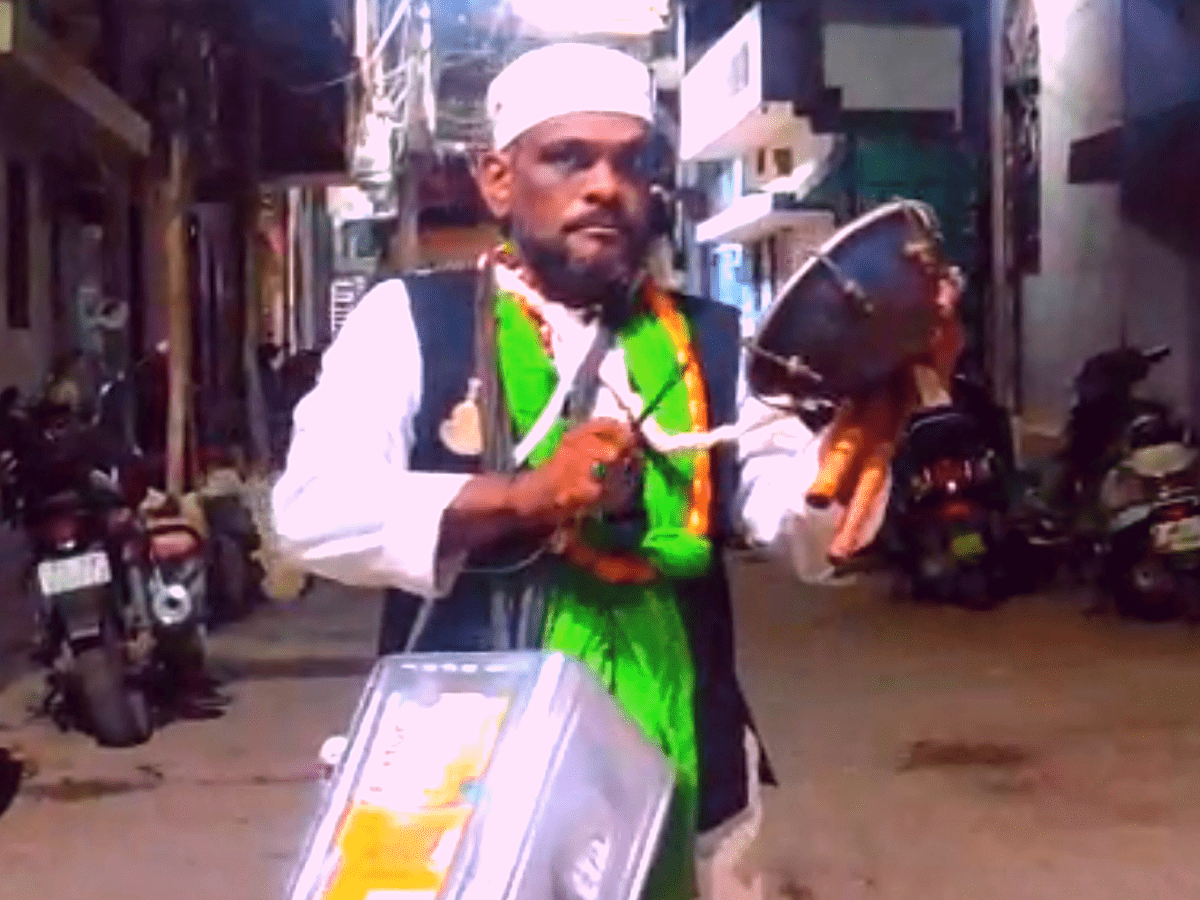
Hyderabad: They are the most eagerly awaited persons during Ramazan. They sacrifice their own comfort and rest for the sake of others. The ‘sehriwalas’, as they are known, keep awake so that others do not miss their sahur, the pre-dawn meal. They are the unsung heroes of Ramazan, the silent guardians of a cherished tradition.
In the heart of Hyderabad, where the ancient intertwines with the modern, the tradition of sehriwalas is as timeless as the city itself. Eagerly awaited by the faithful during the holy month of Ramazan, these tireless souls take on the noble duty of ensuring that people wake up in time for sehri.
As the city sleeps, enveloped in the hush of the early morning, the sehriwalas are up and about. Armed with determination and a fervent spirit, they mount their two-wheelers, a modern-day chariot for their sacred mission. The night does not deter them, nor do the barking dogs keep them at bay. Rather they fuel their resolve to serve their community.
The sehriwalas traverse the winding streets of Muslim neighborhoods, a symphony of naath—an Islamic song of praise—filling the tranquil air. The sound, both haunting and melodic, rouses the slumbering souls, gently coaxing them to awaken for their pre-dawn meal.
Sehri karo utho, they call out through megaphones, their voices carrying the weight of tradition and devotion. Each word is a beckoning, a reminder of the blessings that await those who rise early to nourish their bodies and spirits before the fast begins anew. Besides being wholesome, sehri carries great religious significance in Islam. “Verily Allah and His malaaikah (angels) send blessing upon those who eat sehri”, the Prophet Muhammad remarked. There are many traditions which explain how Allah rewards even eating before dawn for fasting.
In a world where smart phones can easily set alarms, the sehriwalas remain steadfast in their mission. They understand that the call to suhur is not just a sound — it is a sacred melody that stirs the heart and soul of every believer.
As the first light of dawn creeps over the horizon, casting a golden hue upon the city, the sehriwalas continue their rounds. Between 2-45 am and 4-00 am they can be seen sounding the wakeup call both in the old city and newer parts of Hyderabad.
A visually impaired man, Syed Muneer, has been on this noble mission for the last 37 years. Singing naaths, he moves around Osman Bagh and Kamatipura areas of the old city. A megaphone in one hand and a walking stick in another, he goes from house to house asking people to get ready for ‘seher’. He also keeps announcing the time. Muneer even shares his phone number 9347865921 (Google pay) should someone want to help him.
Elderly Hyderabadis recall how waking up people for ‘sehr’ is a tradition which goes back to the Qutb Shahi period. Earlier cannons used to be fired to indicate the end of fast. Now times have changed with alarm clocks and mobiles to shake one out of slumber. But still the good old practice of sehriwalas going round localities continues.
Their duty, however, does not end with the end of Ramazan. As the month of fasting draws to a close, the sehriwalas return once more, this time not with songs of awakening, but with hands outstretched in humility. They come seeking alms, not for themselves, but for the greater good of the community. People moved by their dedication and selflessness, offer charitable donations like Zakat and fitra as a token of gratitude for the tireless efforts of these modern-day heroes.
And so, the cycle continues, year after year, generation after generation. In the bustling streets of Hyderabad, amidst the mingling aroma of spices and incense, the sehriwalas remain a beacon of tradition and faith—a reminder that in the quiet hours before dawn, there are those who burn with a light that never fades.



